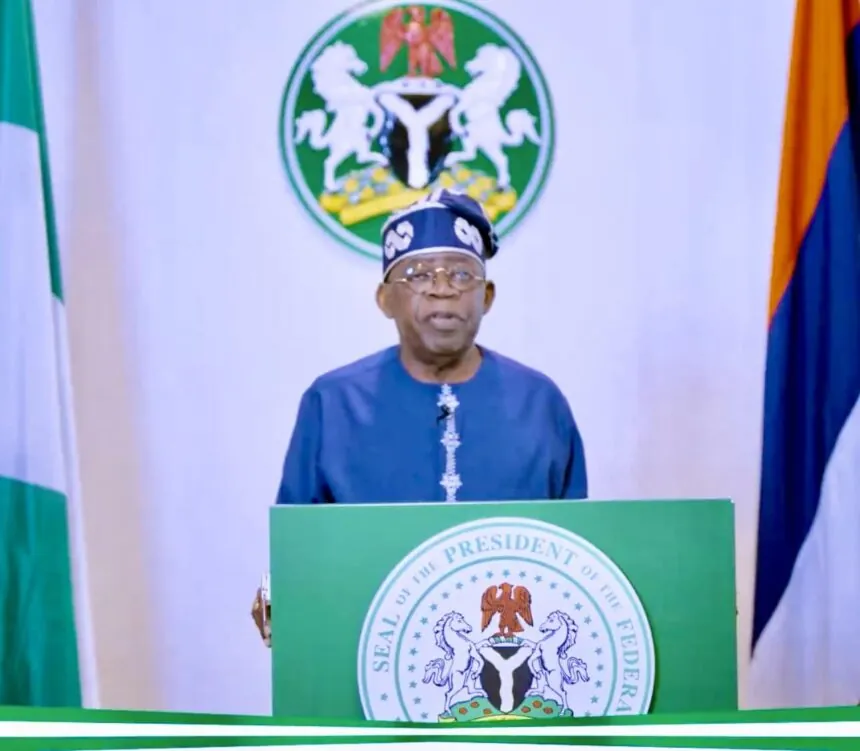“How Fake Is Tinubu’s 2027 Endorsement? Analysts Question Early Support Claims”
By Tolu Adebayo, Political Correspondent
In the wake of mounting political tension and growing public dissatisfaction with Nigeria’s economic and security situation, President Bola Ahmed Tinubu’s recent endorsement by 22 All Progressives Congress (APC) governors for a second term in 2027 is being met with skepticism and outright dismissal by many Nigerians—including some within his own party.
A Controversial Endorsement
On May 22, 2025, APC governors, in a move portrayed as unanimous and strategic, declared their endorsement of Tinubu as the party’s flag bearer for the next presidential race. However, this public show of loyalty has sparked backlash, raising questions about the credibility, timing, and authenticity of the endorsement.
Senator Ali Ndume, a prominent APC lawmaker and long-serving member of the National Assembly, disassociated himself from the endorsement. In a televised interview, Ndume revealed he walked out of the venue when the motion to endorse Tinubu was introduced, stating, “That was not why I was there.” He further noted that economic conditions were too dire to entertain political celebrations.
“Jonathan was endorsed by 22 governors and still lost. Endorsements don’t reflect public sentiment. I pity the president,” Ndume added.
Political Elites vs Public Reality
Critics argue that the endorsement reeks of elite detachment from the harsh realities Nigerians are facing: escalating inflation, widespread hunger, insecurity, and declining public trust in governance. Many believe the endorsement is an orchestrated show of political survival rather than a genuine reflection of Tinubu’s popularity or performance.
Political analyst Dr. Halima Abubakar stated:
“This is not a real endorsement—it’s political theatre. Endorsements without the people’s support are hollow gestures. The streets are telling a different story.”
Amaechi, Wike, and the Battle for 2027
Rotimi Amaechi, former Minister of Transportation and a founding member of the APC, recently issued a stinging critique of Tinubu’s leadership in an interview with the BBC. He questioned the direction of the country under Tinubu, warning that hunger and insecurity are worsening, and hinted at the need for a new opposition coalition.
In a counterattack, FCT Minister Nyesom Wike mocked the opposition movement, claiming Tinubu’s performance had already “killed” the coalition’s relevance. “They have no choice but to watch Mr. President succeed,” he declared at a recent road commissioning event.
Are Endorsements Still Politically Powerful?
Analysts say the premature nature of the 2027 endorsement may backfire, likening it to a false start in a long-distance race. The danger, they argue, is that it could be perceived as tone-deaf, ignoring the very real grievances of ordinary Nigerians who are calling for relief, not re-election campaigns.
“Endorsements don’t win elections. Performance and public perception do,” said Dr. Uche Umeh, a political science lecturer at the University of Lagos. “The 2027 race is still open, and early endorsements—especially ones as questionable as this—are more about political self-preservation than national interest.”
With cracks showing even within the ruling party, and opposition leaders like Atiku Abubakar, Peter Obi, and Nasir El-Rufai reportedly aligning for 2027, the road ahead is anything but certain for President Tinubu. The question remains: is this endorsement a genuine signal of party unity—or a desperate attempt to shape a narrative that reality may soon undo?



